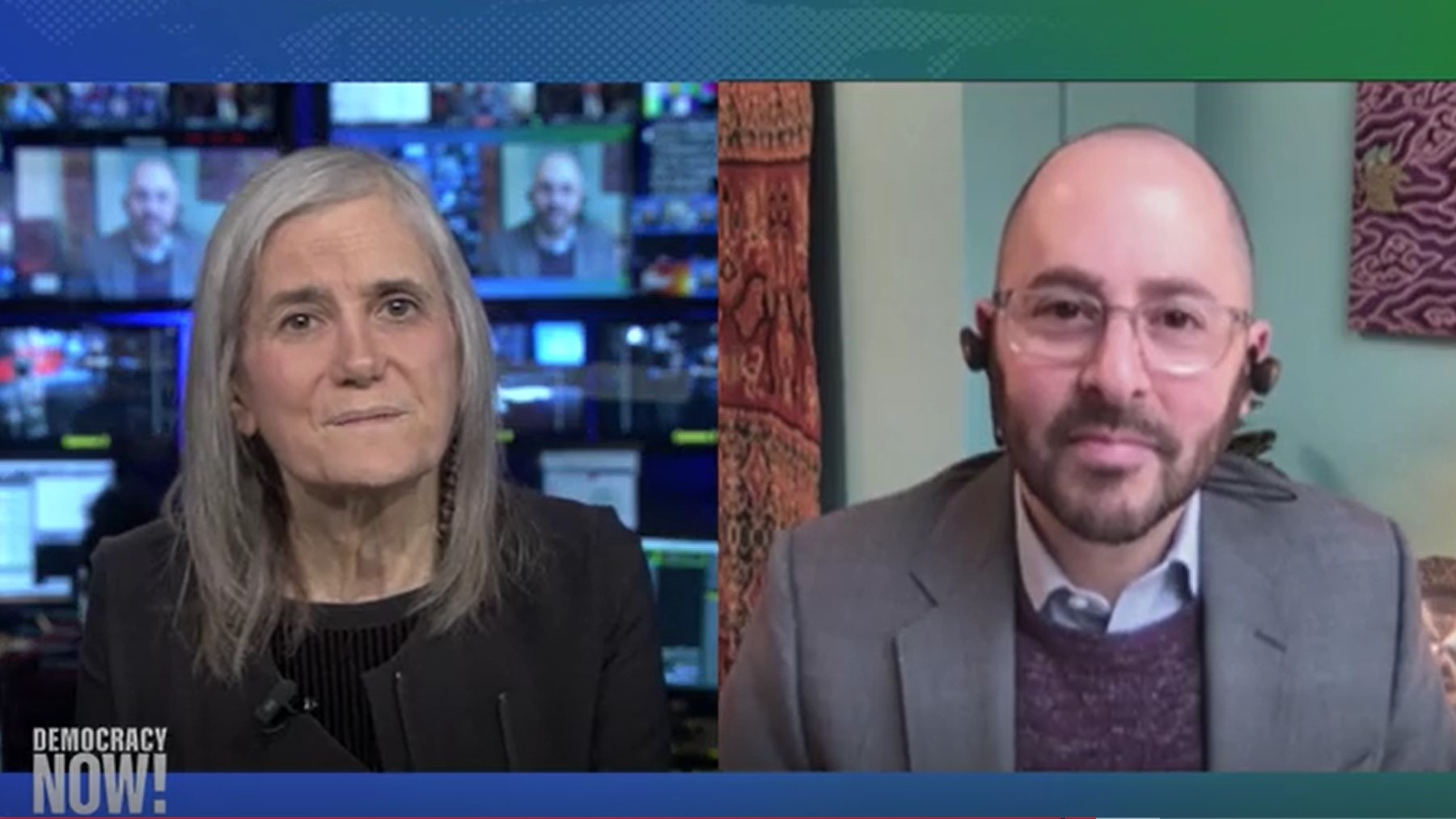Menchik Interviewed on Moderna Vaccine Trial & Effort to Make mRNA More Accessible

In an interview with Democracy Now, Jeremy Menchik, Associate Professor of International Relations at the Frederick S. Pardee School of Global Studies at Boston University, discusses his recent op-ed in Stat News in which he discusses his experience participating in the Moderna COVID-19 vaccine trials and why the company’s relentless profit chasing drove him to withdraw from further trials.
In his original article, titled “Confessions of a ‘human guinea pig’: Why I’m resigning from Moderna vaccine trials,” Menchik outlined his experience as a COVID-19 vaccine trial participant, stating, “the noble enterprise of science-making I had imagined I was a part of is actually, first and foremost, an exercise in ruthless corporate profit-making.” During his interview, Menchik argues that Moderna should use its profits – $15-18 billion in 2021 alone – to change the world. He goes on to say that if Moderna’s mRNA technology is made more accessible and licensed to other manufacturers, it would allow for a more equitable response to the pandemic and ensure that vaccines are made available in all countries and not just richer countries.
Menchik also takes time to respond to criticisms of his article, specifically a response piece published by former President of Pfizer Global R&D John LaMattina in Forbes. He argues that what appears to make these vaccine manufacturers nervous is that their “guinea pigs” have a voice and are demanding accountability; following his original essay, Menchik scaled up his efforts to hold Moderan accountable by launching a website – mrna4all.org – where other trial participants can learn about the really problematic public health policies of Moderna and get involved in the effort to pressure vaccine manufacturers.
Menchik’s full interview can be viewed below.
Jeremy Menchik is an Associate Professor in the Frederick S. Pardee School of Global Studies at Boston University and a faculty affiliate in Political Science and Religious Studies. His first book, Islam and Democracy in Indonesia: Tolerance without Liberalism (Cambridge University Press, 2016) explains the meaning of tolerance to the world’s largest Islamic organizations and was the co-winner of the 2017 International Studies Association award for the best book on religion and international relations. His work has appeared in the academic journals Comparative Studies in Society and History, Comparative Politics, International Studies Review, Politics and Religion, Asian Studies Review and South East Asia Research as well as in The New York Times, The New York Review of Books, The Washington Post, Christian Science Monitor, The Wall Street Journal, and USA Today. His recent research focuses on social movements, the politics of modern religious authority, and the origins of the missionary impulse. Read more about Professor Menchik on his faculty profile.